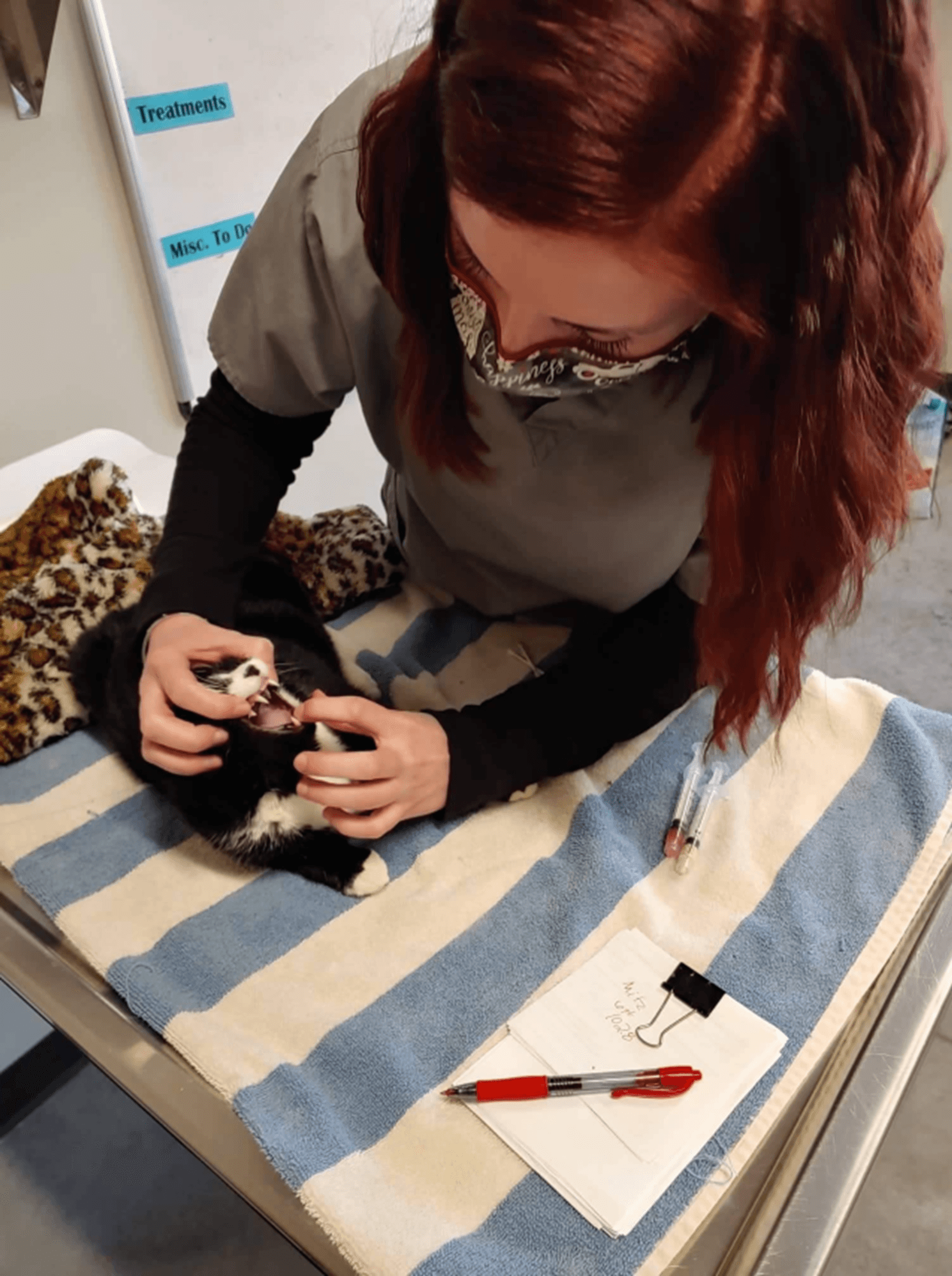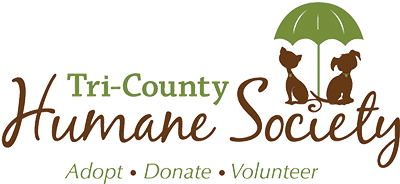
Have you wondered what it’s like behind the scenes in the medical department at Tri-County Humane Society? Let’s take a look at a typical Monday as one of the TCHS veterinary technicians… Arrive at 7:30 a.m. and help plan the surgery schedule for the day. We look through the entire list of animals in the shelter waiting for their spays and neuters. Who has deposits (meaning they have a home lined up and need surgery first)? Who is part of a group since doing an entire litter on one day is more efficient than one at a time from a litter? How can we best balance between dogs, cats, males, and females to best utilize our veterinarian’s time? Which animals can be scheduled to go home today? When do we work in medical examinations with the veterinarian between surgeries?
There is a lot of planning and coordination to safely and effectively execute a high volume spay/neuter day. The work of one veterinarian, two TCHS vet techs, and three surgery assistant volunteers results in 27 surgeries performed by 12 p.m.! Then there’s the clean-up, medical charting, prescription fills, and much more!
The animal care team checks the scheduled adoption appointments. Which animals are scheduled for adoption but still need booster vaccines, de-wormers, other medical treatments prior to adoption? We find ways to squeeze those examinations and treatments into the day between incoming animals that need immediate attention and sick/injured animals in the shelter.
The unexpected
Around 2 p.m. a cat arrives after starting labor in her foster home. She delivered two kittens on her own in the morning, then labor stalled as complications arise. Dystocia is the technical term for difficult labor and birth, and it is not too common in cats. With the direction of staff veterinarian, medications and labor support are provided to momma cat. Over the next 1-2 hours, three more kittens are delivered, one of which was breached. The rear feet of this kitten presented first, and needed assistance to fully deliver. Did you know vet techs were midwives, too? Momma cat and kittens were doing well the following morning.
Saying goodbye
After stabilizing momma cat and kittens, we turned to a staff favorite canine resident, a geriatric Labrador Retriever with an unknown history. He was recently diagnosed with heart failure, his body condition had been wasting away, and he struggled to breathe daily. We made the difficult decision to say a humane goodbye to end his suffering. He ate lots of treats and Easy Cheese and he fell asleep in our arms. This was a heart-breaking act of love.
Then, comes time for afternoon meals, meds, and lots of puppy poop to clean up. Beyond the medical care, the daily basics must still be met. We freshen up kennels, top off water, and give a little extra love to shelter animals (which also soothes our hearts) as we prepare to close.
The unexpected, yet again
It’s near closing time, and we’re still working on charts and giving out the last of the evening meds. We then have an orphaned neonate kitten arrive. Kitten must be weighed, examined, warmed, and offered a bottle of kitten milk replacer. Once stable, we need to look for a foster home to provide around the clock care for the next several weeks.
As we start closing rounds to lock up and tuck critters in, we notice a cat with upper respiratory symptoms (sneezing, congested, etc.). Time to do a brief assessment and begin treatment before we leave. We get a surprise of a major fever (106 degrees F), and provide fluid therapy and nutritional support. Surprisingly, she eats readily and seems comfortable after fluids. We plan to recheck her in the morning and continue with closing up the shelter.
This is but a small number of the patients we’ve seen and cared for today. We love these animals with all our hearts and prepare to do it all over again tomorrow!
Rose Hegerle is a Certified Veterinary Technician with 15 years of experience in shelter and clinical settings.









